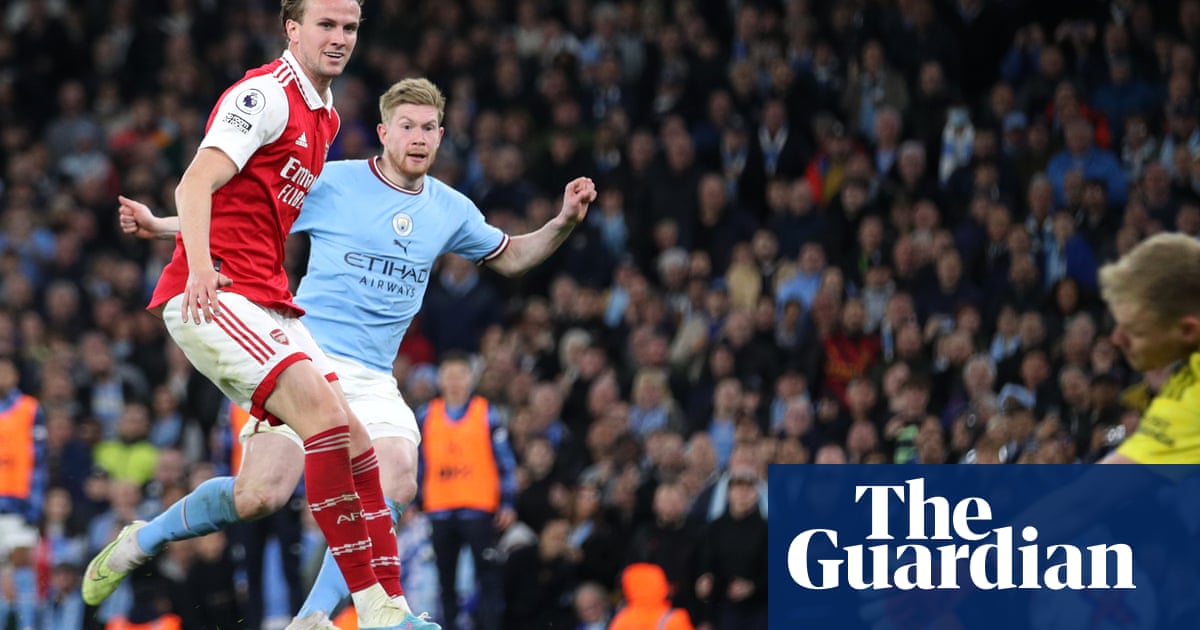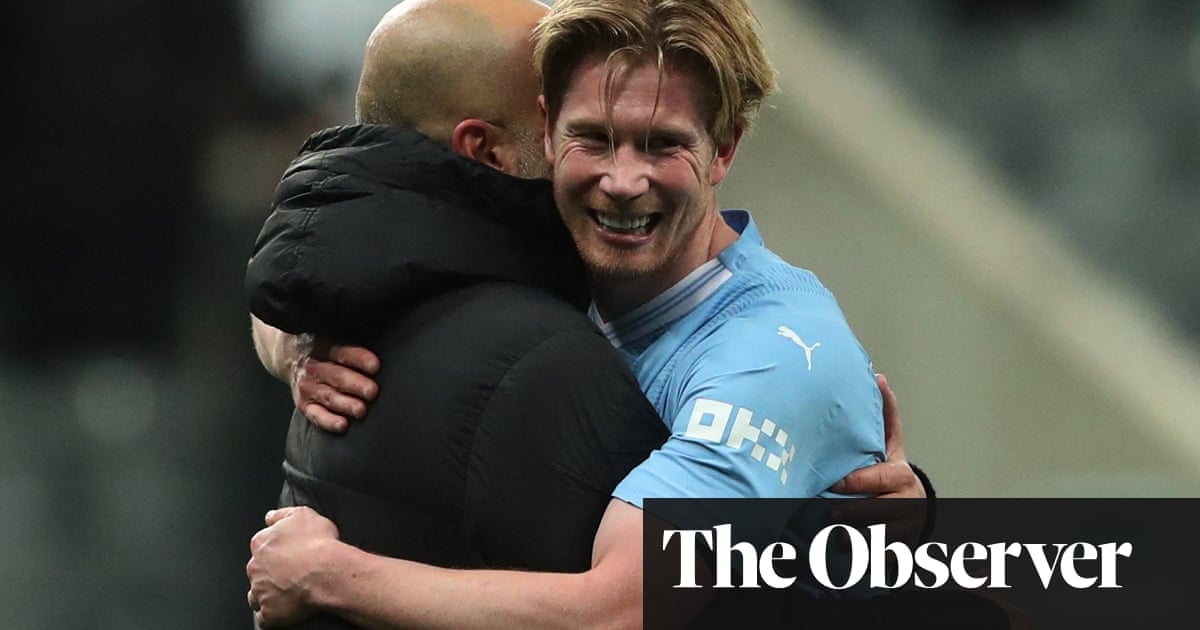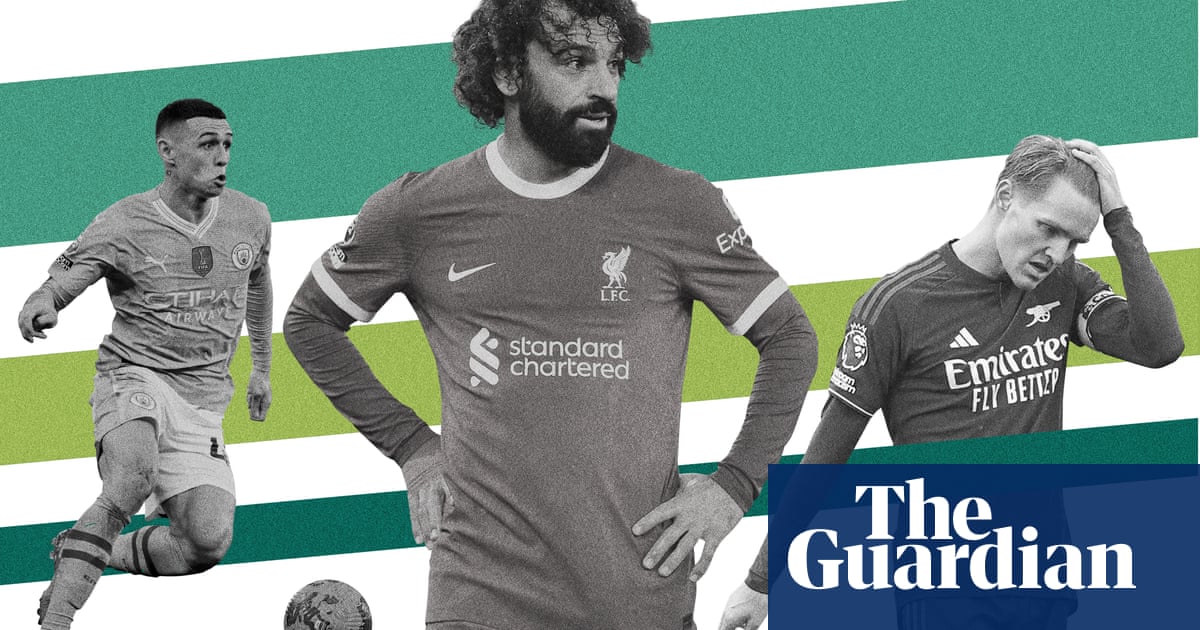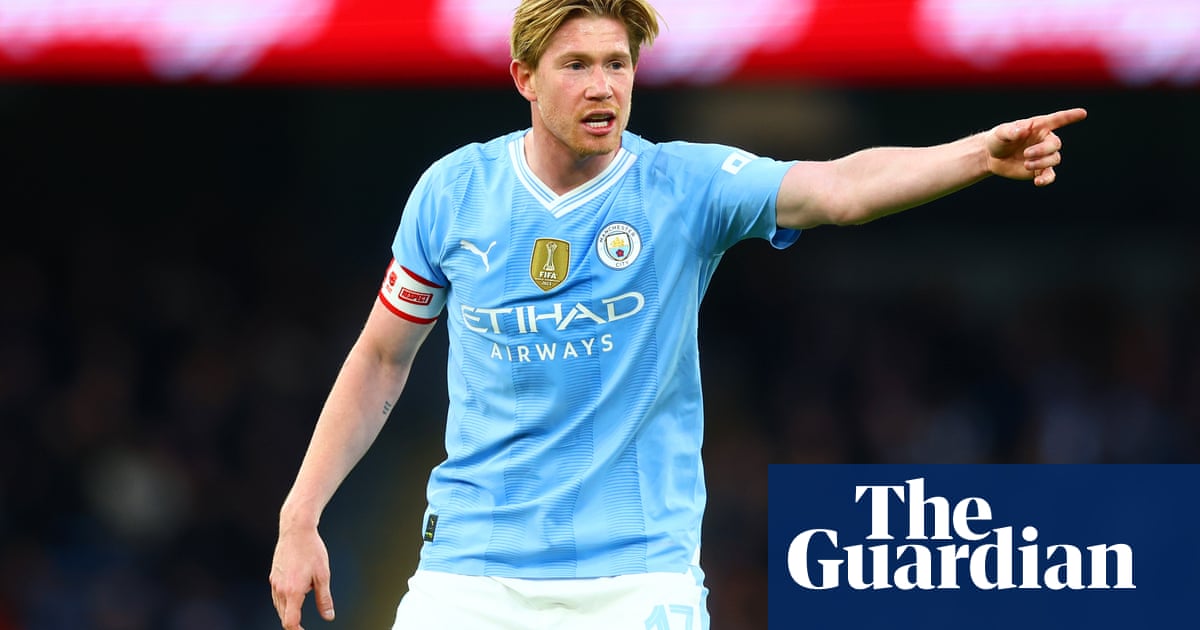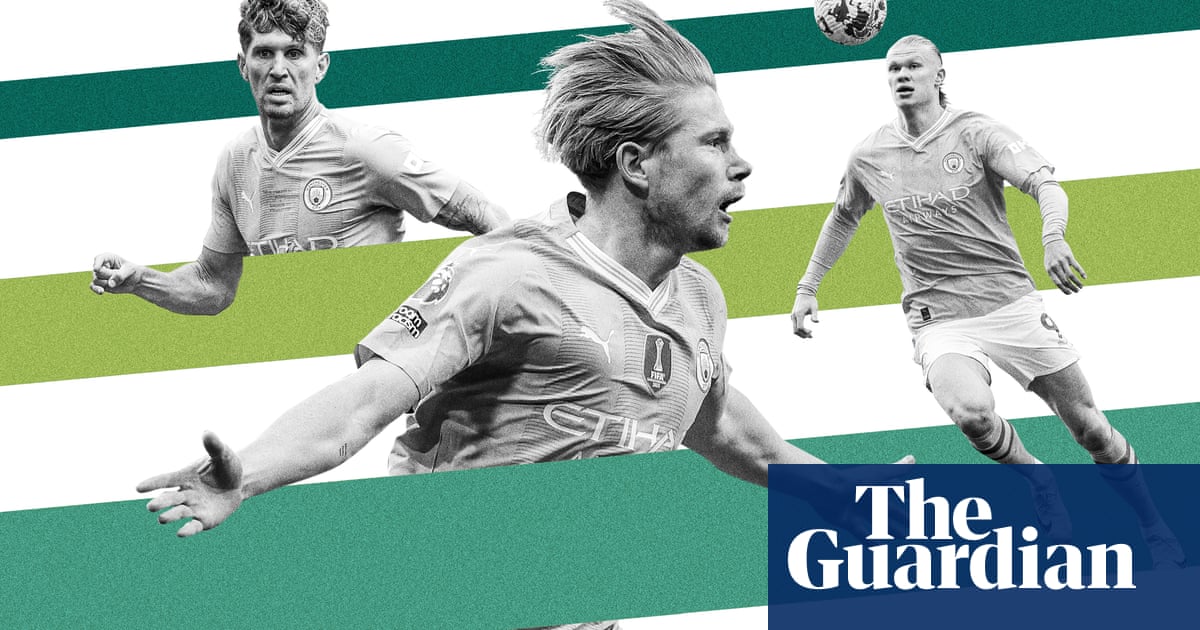
With 16 minutes to go at St James’ Park on Saturday, Liverpool were perhaps beginning to contemplate their five-point lead over Manchester City, having played a game more, becoming an actual five-point lead without caveats – which, with City still to go to Anfield – might have started to look fairly significant. But then Kevin De Bruyne scored one and set up another, the lead is down to two points and the champions are within striking range.
City are still nowhere near their best, vulnerable to balls played in behind their defensive line in the way that Pep Guardiola sides struggling for form often are. That they conceded two in three minutes against Newcastle was also characteristic; leaking goals in batches is another familiar quirk of Guardiola teams when they’re still searching for the right set-up out of possession. At half-time, Saturday’s match was almost a paradigmatic example of how Guardiola teams can lose games: City had controlled the ball to an extraordinary degree without creating a huge amount and yet had not only let in two goals to brilliant finishes but had conceded three or four other chances in transition. Newcastle had been under some pressure but essentially the game had been following a similar pattern when De Bruyne came on.
And that’s the oddity of City this season. Guardiola’s football is always about the team, the positional sense, movement and interactions of the collective, yet recently they have been bailed out by the brilliance of individuals – which is the huge advantage, of course, in spending vast quantities of money. And from a creative point of view, there is nobody more brilliant than De Bruyne. With other players there might have been a thought that his goal was fortunate; it is, though, manifestly within De Bruyne’s capabilities to use Fabian Schär’s legs like a croquet hoop, rolling the ball between them and into the bottom corner. His pass for Oscar Bobb’s winner was equally precise.
De Bruyne said that after five months out with a hamstring injury, he knew he could only manage 25 minutes or so. The worry for the other title challengers is that even if it takes him another month to get back to being able to manage a full 90 minutes, City face only one top-half team between now and the beginning of March – and that is Chelsea, who lie ninth and, for all that they’ve just won a third consecutive league game for the first time this season, remain wildly inconsistent. There is plenty of time not only for De Bruyne to get back to full fitness but for Erling Haaland, John Stones, Ederson and Manuel Akanji to recover before the month that is likely to determine the destination of the title: from the first weekend of March to the first weekend of April, City play Manchester United, Liverpool, Brighton, Arsenal and Aston Villa.
Haaland is an astonishing goalscorer. Stones, with his capacity to step out from the centre of defence, was critical to offering City security against the counterattack last season, becoming the additional midfielder they needed to compensate for the fact that Haaland doesn’t drop deep in the way Guardiola forwards tend to have done in the past. Ederson is probably the best ball-playing goalkeeper in the world. Akanji had a very good first season in England, impressive across the back four. But it’s De Bruyne’s return that feels most significant.
Critics of Guardiola suggest his football can be mechanical, a little bloodless, lacking the rough edges or improvisation or spontaneity that can thrill a crowd. And there is some truth to that. That’s why a Guardiola team playing poorly can dominate the ball while appearing toothless. But his best teams have a player capable of breaking the patterns – what Lionel Messi did for Barcelona, De Bruyne does for City. He sees things others don’t, has the precision to pick holes others can’t but also has the discipline and tactical awareness not to disrupt the shape at inopportune moments.
That’s possibly bad news for those who prefer to see Phil Foden in central positions but, good as Foden has been recently, playing through the middle as Julian Alvárez has moved to a more orthodox centre-forward position in the absence of Haaland, he is not De Bruyne, does not yet have the Belgian’s combination of attributes. But Foden on the flank is still a potent weapon and, even looking through the lens of the England national team, the existence of Jude Bellingham means that is where he is likely to start in the Euros.
The expectation during City’s rocky autumn was that they would click as they so often have in the second half of the season. That spring fixture list makes it unlikely they’ll rattle off the series of successive victories they have in the past, but De Bruyne’s return is probably the first step to a run to the title. Anfield on 9 March already looks vital.




